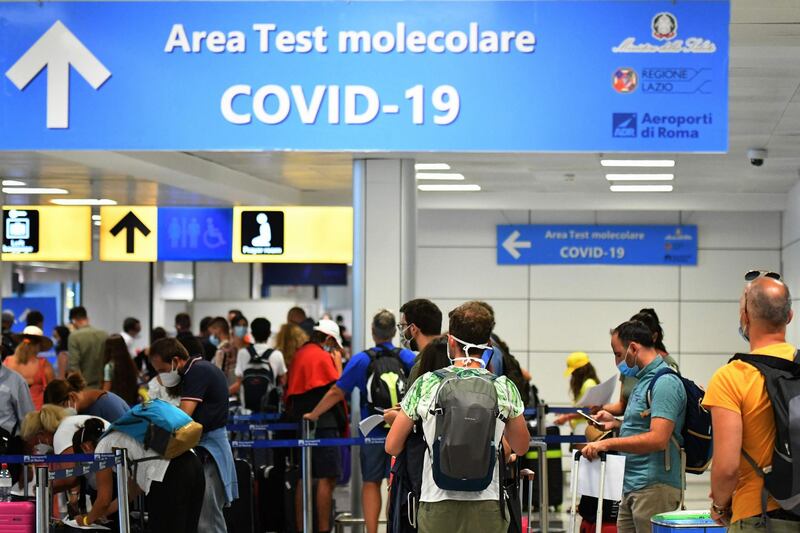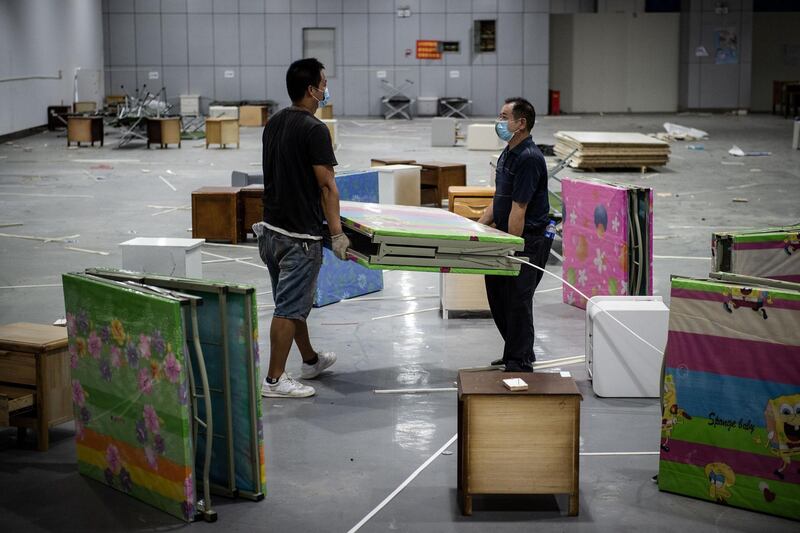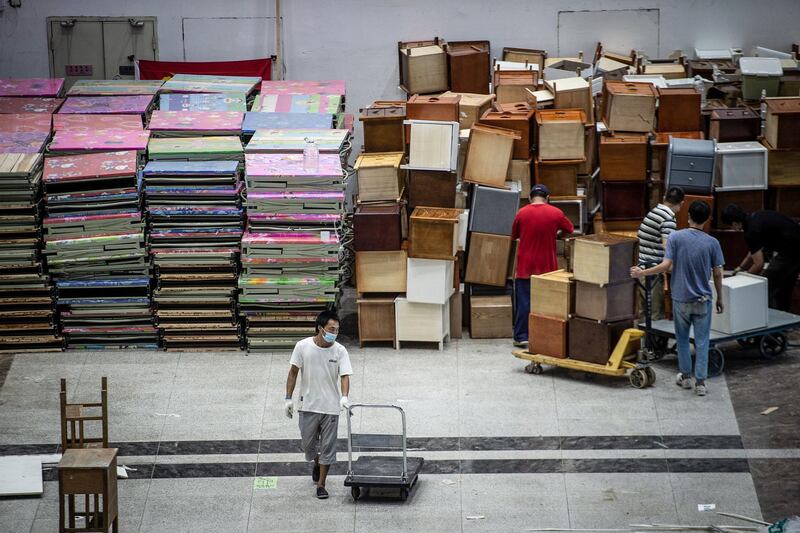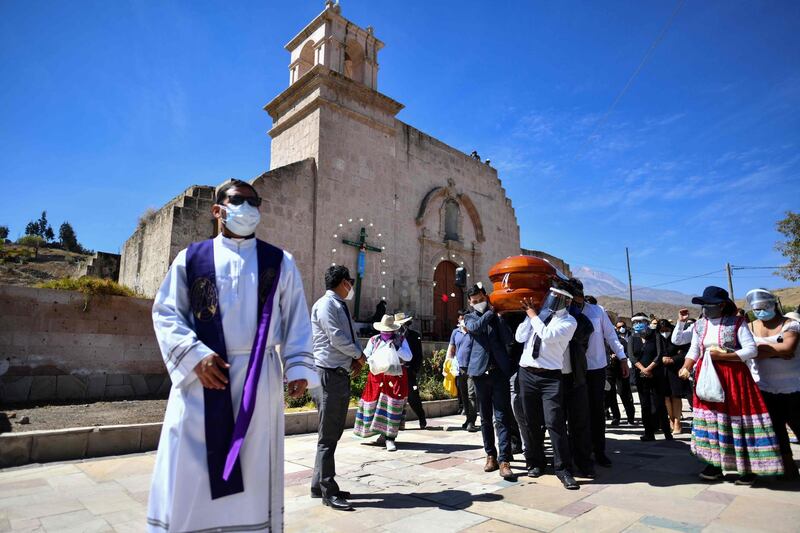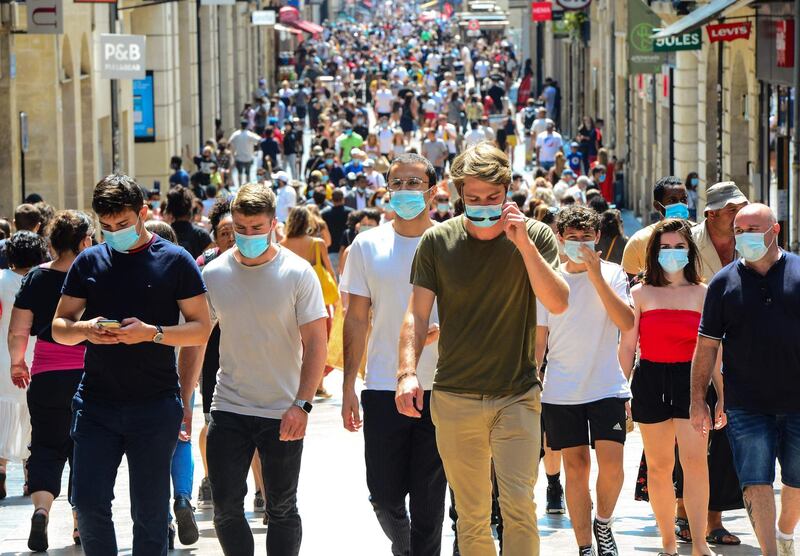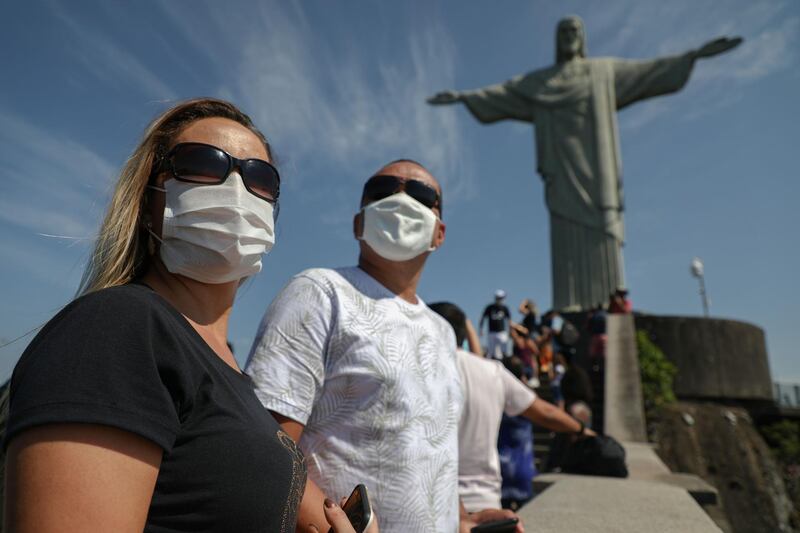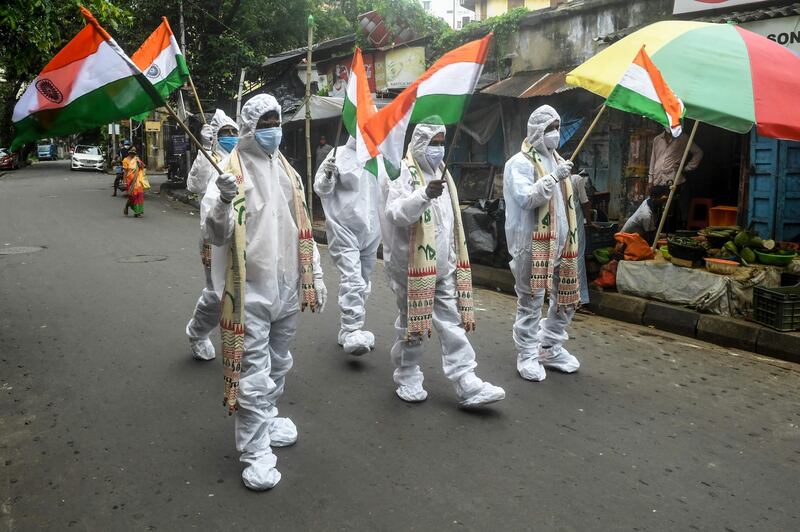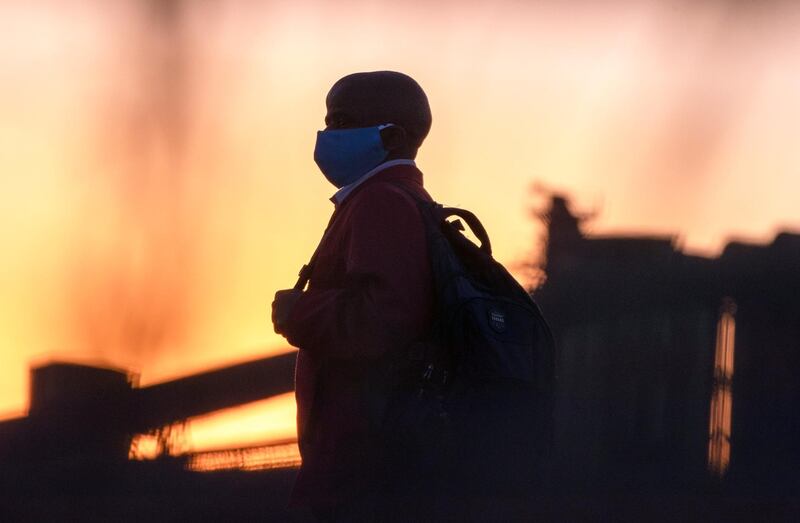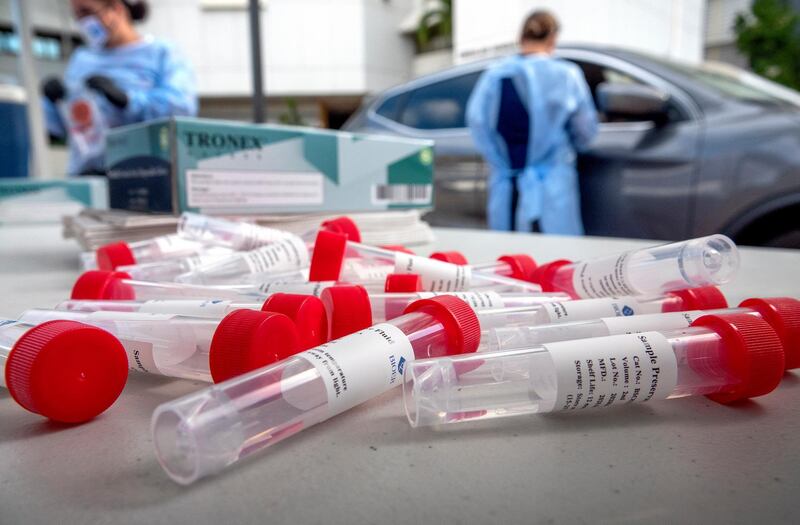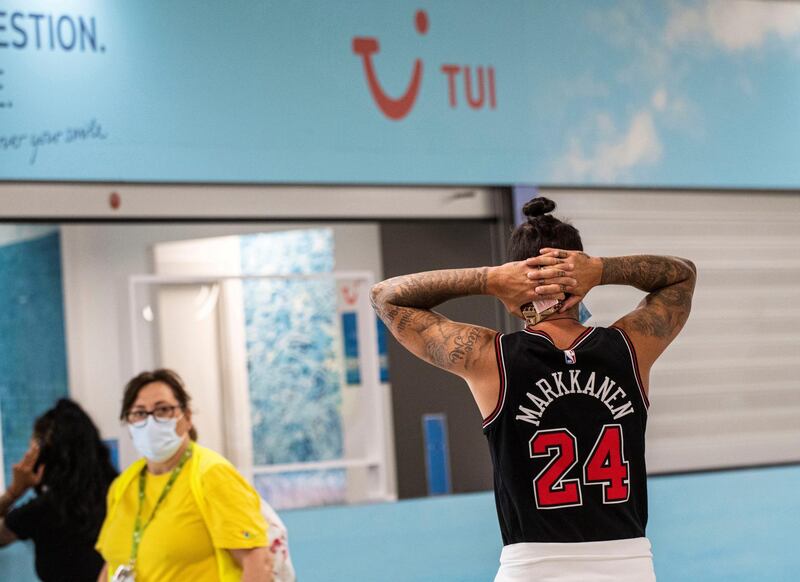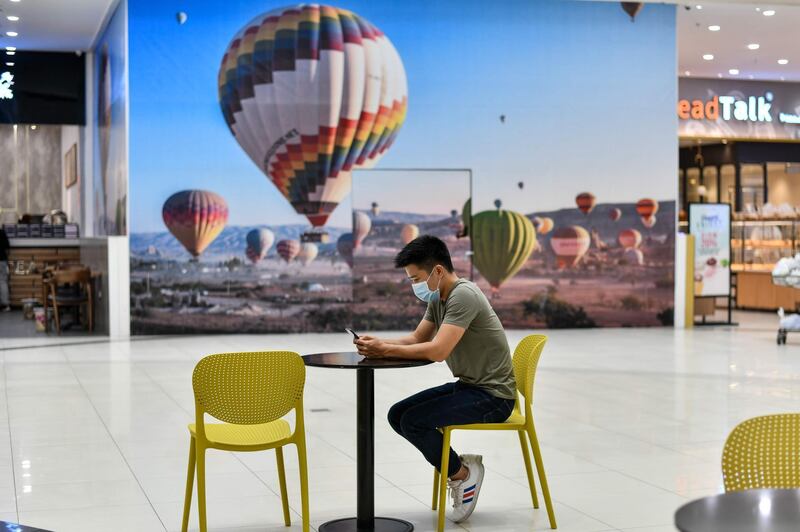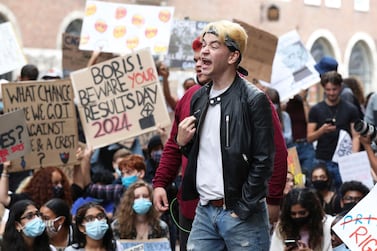Travellers arriving at Rome from at-risk nations received tests for Covid-19 on Sunday amid worries of a second wave of coronavirus cases across Italy and Europe.
Health Minister Roberto Speranza signed a decree to make masks mandatory from 6pm to 6am in public areas where groups gather.
The decree also stopped outdoor discos and nightclubs from operating.
Holidaymakers arriving at Leonardo da Vinci airport in Italy's capital were given the choice of being tested immediately or taking a test within 48 hours of arrival at a local public health office close to where they stay.
The mandatory checks were put in place by the country’s health ministry for travellers arriving from Croatia, Greece, Malta or Spain under an order issued last week.
The changes come amid fears that travellers from abroad are causing an increase in new coronavirus infections in Italy in recent weeks.
On Saturday, the daily number of new infections topped 600 for the first time since May.
_______________
Coronavirus around the world
_______________
In France, authorities also recorded their highest one-day rise in virus infections since May.
The country reported 3,310 infections in a single day on Saturday, and the rate of positive tests is now at 2.6 per cent.
The daily case count was down to several hundred a day for two months, but started rising again in July.
The rise has been blamed on family weddings across the country. But France still plans to reopen schools nationwide in two weeks.
The French government is also determined to avoid a new nationwide lockdown that would further damage the economy and threaten jobs.
It is pushing for wider use of face masks and tighter protection for migrant workers and in slaughterhouses.
In Germany, authorities in the southern state of Bavaria said on Sunday that they still had not been able to contact 46 of more than 900 people who tested positive for the coronavirus on entering Germany recently, but did not receive the test results.
The bureaucratic breakdown led to an uproar in the country, which has handled the coronavirus with relative success, over concerns that those who tested positive but were not aware of it could spread the virus to others.
In Britain, which has recorded the highest death toll in Europe during the outbreak and the most severe contraction of any major economy so far, the government announced the creation of a new National Institute for Health Protection.
It will replace the Public Health England Agency, The Sunday Telegraph reported.
The institute is to be modelled on Germany's Robert Koch Institute and will join Public Health England’s pandemic response with the National Health Service’s contact tracing operation.
In Belgium, which is battling one of the most serious coronavirus outbreaks in Europe, more than 200 people demonstrated in on Sunday after the regional government made it mandatory to wear face masks in public.
The regulation that took effect on Wednesday applies to 1.2 million people in the Brussels region.
Many of the protesters did not wear masks but carried placards saying, "Corona circus" or "It's my body, it's my choice".
"It is not the virologists and doctors who are going to dictate the rules in our country," protester Michel told AFP. "We are being treated as children."
